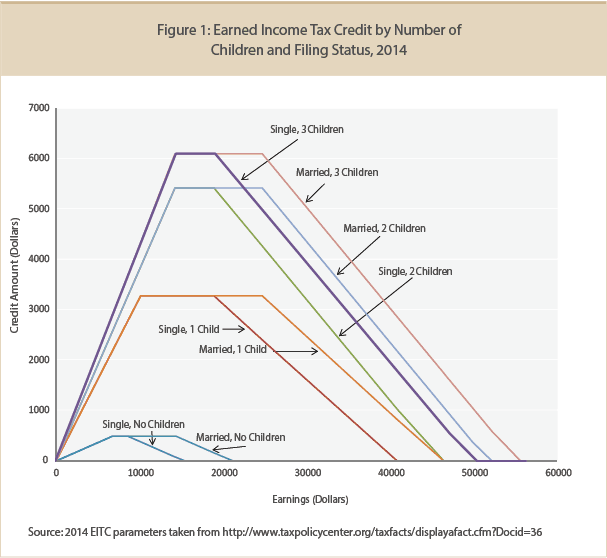Like everyone else in policy circles, I think the tax code as it is currently constructed is a complicated joke. There is a lot that can be said for how to fix it, some of which I don’t know enough to comment about. One thing I do know enough to comment about is how to fix the child-related parts of the tax code. Here is how I would do that (figures from 2013).
- Eliminate the Child Tax Credit (save $54.15 billion).
- Eliminate the Dependent Exemption (save $39.61 billion).
- Eliminate the Head of Household Filing Status (save $5.92 billion).
- Eliminate the Child and Dependent Care Tax Credit (save $3.51 billion).
- Reform the Earned Income Tax Credit so that it pays the same benefit to all qualifying workers regardless of how many children they care for (savings unknown).
- Create a Child Benefit (aka Child Allowance) program that pays out a universal monthly benefit per child to every family.
The basic thrust of this reform is to convert all of the code-complicating child benefits into a universal monthly benefit. In addition to the straight deletions from the code, this also reforms the EITC in a way that makes it way more understandable. Right now, the EITC benefit looks like this:

You got that? You understand also how that interacts with other tax code provisions? Probably not. Now imagine how well something that looks like that can incentivize people to work, which is the purported goal of the program. The Reformed EITC would have one line that goes up in a trapezoid shape, instead of this mess. Further, by detaching the EITC from child benefits, it makes it easier to eventually transform it into a monthly benefit as well, instead of the yearly windfall that it currently is.
This reform could be done in a “budget neutral” fashion. You’d just set the Child Benefit level to be equal overall to the money saved from the tax code changes. It can also be done, as I’d prefer, in a way that “spends” more money overall. You’d just set the Child Benefit level higher than the money saved from the tax code changes.